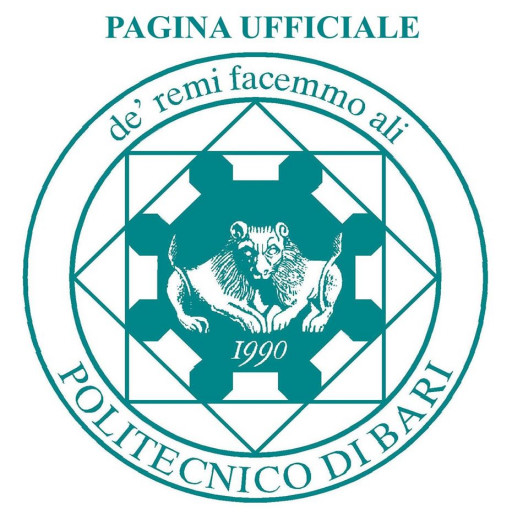Photos of university / #politechnika_gdanska
Automatic Control and Robotics – Specialization: Signal Processing at Gdansk University of Technology offers students a comprehensive education in the field of modern automation and robotics with a strong emphasis on signal processing techniques. This program is designed to equip future engineers with the knowledge and skills necessary to develop, analyze, and implement complex control systems and robotic solutions across various industries. Throughout the course of study, students will explore fundamental concepts in control theory, automation, sensor and actuator technologies, as well as advanced methods in digital and analog signal processing.
The curriculum covers a broad spectrum of topics, including mathematical modeling of dynamic systems, designing control algorithms, and analyzing system stability and performance. Students will gain practical experience with contemporary tools and software for system simulation and control design, preparing them to address real-world engineering challenges. Special attention is given to the processing and interpretation of signals obtained from sensors in robotic applications, enabling students to improve the accuracy, efficiency, and robustness of intelligent systems.
In addition to theoretical foundations, the program emphasizes practical projects and laboratory exercises. Students have the opportunity to work on cutting-edge research topics such as autonomous robots, sensor networks, and intelligent automation solutions. The specialization in signal processing provides a solid basis for careers in automation, robotics, telecommunications, and instrumentation. Graduates will be prepared to undertake roles in research and development, system integration, and technical consulting.
The program also fosters teamwork, problem-solving skills, and innovation, encouraging students to participate in internships and collaborations with industry partners. The interdisciplinary approach integrates knowledge from electrical engineering, computer science, and control engineering, ensuring graduates are versatile and competitive in the global market. Upon completing this specialization, students will be well-equipped to contribute to the development of smarter, more efficient automated systems, and to drive technological advancements in signal-based control and robotic systems.
Automated Control and Robotics — Specialization: Signal Processing at Gdansk University of Technology offers students a comprehensive education in the field of modern automation and robotic systems with a particular emphasis on advanced signal processing techniques. The program is designed to equip students with both theoretical knowledge and practical skills necessary for designing, analyzing, and implementing complex control systems and robotic solutions. Throughout the course, students will explore fundamental concepts such as control theory, automation processes, mechatronics, and robotics engineering, alongside specialized modules focusing on digital signal processing, sensor data analysis, and pattern recognition. The curriculum emphasizes hands-on experience through laboratory exercises, simulation projects, and industry collaborations, enabling students to develop competencies in designing algorithms for signal enhancement, filtering, and interpretation within various automation and robotic applications.
Students will gain proficiency in programming languages relevant to control systems and signal processing, such as MATLAB, Python, and C++, as well as familiarity with modern hardware platforms used in robotics, including microcontrollers and embedded systems. The specialization prepares graduates for careers in sectors such as manufacturing automation, autonomous vehicles, aerospace, energy, and healthcare, where advanced signal processing techniques are critical for system performance and innovation. The program also addresses current challenges like real-time data analysis, adaptive control, machine learning integration, and system security, ensuring that students are well-prepared for the evolving demands of the industry. Graduates will have the opportunity to participate in research projects, internships, and collaborations with industry partners, fostering a practical understanding of the field and enhancing employability upon graduation. Overall, this specialization combines rigorous academic training with practical applications, opening pathways for careers in research, development, and implementation of intelligent automation and robotic systems driven by sophisticated signal processing methods.
For graduates from a BSc 7 semester undergraduate study (210 ECTS) or from a BSc 6 semester undergraduate study plus the first semester of a MSc 4 semester study or for students after the 7th semester of a Swedish 10 semester Civil Engineering Programme that have managed the following courses: Dynamics Signals and Systems, Control Engineering, Robotics, Electrical Engineering and Electronics or their equivalents. Furthermore the students should have had to complete at least two from the following courses: Mechanics and Strength of Materials, Continuous process control, Discrete process control, Real time systems, Decision support, or their equivalents.
The Automatic Control and Robotics — Specialization: Signal Processing at Gdansk University of Technology offers a range of financing options for prospective students. Tuition fees are determined by the university's regulations and may vary depending on the student's nationality and specific program structure. Typically, the university provides a transparent fee schedule on its official website, which includes detailed information about costs for both domestic and international students.
Students have the possibility to apply for various scholarships and financial aid programs designed to support academic excellence and social needs. The university participates in national scholarship schemes, such as the "Scholarship for Outstanding Students," which is awarded based on academic performance, research achievements, and extracurricular activities. Additionally, there are grants and bursaries available for students demonstrating financial need. These financial support options are intended to reduce the economic burden of higher education and encourage talented students to pursue their studies in signal processing and control engineering.
International students interested in financing their studies can explore opportunities for government-funded scholarships, Erasmus+ exchange programs, and bilateral agreements between Gdansk University of Technology and foreign institutions. These programs can provide full or partial tuition fee waivers, living stipends, or both, facilitating access to high-quality technical education abroad.
Students are also encouraged to seek employer sponsorships or internships that offer remuneration, which can help finance their studies. Some companies collaborate with the university through partnership programs, offering paid internships, research assistant positions, or co-funded projects for students specializing in signal processing and automation.
The university's Career Services Office provides guidance on financial planning, scholarship applications, and seeking external funding sources. Furthermore, students can undertake part-time work within the university or in the surrounding community to support their living expenses while studying.
In conclusion, financing studies at Gdansk University of Technology's Automatic Control and Robotics program with a specialization in Signal Processing is supported through a combination of tuition fees, scholarships, governmental and international aid, employer-sponsored programs, and part-time employment opportunities, all aimed at making high-quality education accessible to a diverse student body.
The Automatic Control and Robotics program with a specialization in Signal Processing at Gdansk University of Technology offers students a comprehensive education in the fields of control systems, robotics, and advanced signal processing techniques. This program is designed to equip students with fundamental and specialized knowledge necessary for designing, analyzing, and implementing modern automated systems and robotic devices. The curriculum combines theoretical courses in control theory, automation, and robotics with practical laboratory exercises that enhance hands-on skills.
Students will learn about the mathematical foundations of signal analysis, filtering, and processing, which are crucial for interpreting data collected from various sensors used in robotic and automation systems. The program emphasizes the development of competencies in digital signal processing, automatic control algorithms, and real-time system implementation. Through projects and internships, students gain valuable experience in designing control systems that improve the efficiency, safety, and autonomy of machines and devices.
Graduates of this specialization are prepared for careers in industries such as manufacturing, automotive, aerospace, telecommunications, and research and development. They may work as control engineers, signal processing specialists, automation system designers, and robotics developers. The program also provides a solid foundation for further studies at the master’s level or in doctoral research, fostering innovation and technological advancement. Gdansk University of Technology’s reputation for technical excellence, combined with modern laboratories and close ties to industry partners, makes this program a highly valuable educational path for aspiring experts in signal processing within automation and robotics.






